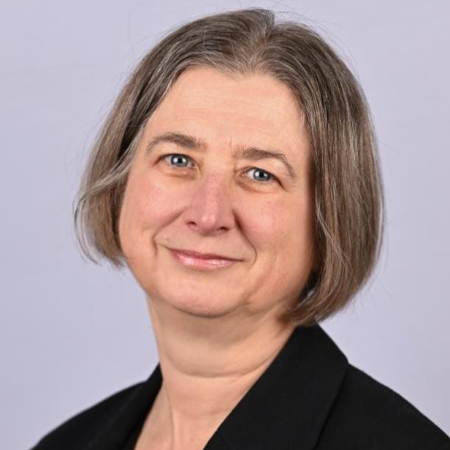Are the wheels of supply chain finance still turning? In viro veritas 4
Supply chain finance can be a great tool for keeping funding flowing to all parts of the supply chain, but is there an existential strain on programmes from the dislocations of physical supply chains amid Covid-19? How will the crisis hit banks' and non-bank programmes and how will contracts be affected? Will ECAs and governments increasingly have to step in?

Riding a bicycle is easy, when you’re pedalling. When pedals stop, you can fall over and Covid-19 is proving the same for global trade and supply chain finance (SCF).
Liquidity freezes have happened before. Everybody heads for the same door at the same time. In recent years, the GFC (2008/9) and the European banking crisis of 2014 are often mentioned. “This is brand new territory,” says a US banker who lived through both. “But we are seeing a lot of the same things. First, there's a massive liquidity play. Everybody runs out of liquidity. Then the central banks start pumping in all kinds of liquidity. Now you're going to see the risk trade really start taking off because everybody is downgrading everybody. It's going to be interesting times.”
Drying pools of receivables and payables
After the GFC, SCF business was a boon to larger banks, in part replacing trade and receivables finance conduit business, and for certain banks SCF has grown dramatically. The banker is blunt: “We’re in a really different place to the GFC, one I’ve never seen before. That was a financial crisis. Everybody’s doing receivables finance now and those pools are going to dry up. If manufacturers are not manufacturing, there are no receivables. If people aren’t buying stuff, then there’s no payables.” The underlying assumption is that if there isn’t economic activity, there aren’t supply chains, let alone SCF.
“Right now there’s the risk trade where everybody’s trying to mitigate risks on their balance sheet, but in 60-90 days the banks are going to be desperately looking for assets because there’s not going to be a lot out there,” the banker says.
One non-bank SCF provider adds: “There are sectors where programmes are stagnant, if not dormant, or like airlines where basically nothing is happening right now. You've got those where demand within the programmes is ever greater, but they may be under stress from the cost of finance. That's not necessarily because the underlying buyer's credit has deteriorated, but because, particularly in US dollars, a number of banks are finding that they're not funding in dollars at the rates that they were before, but at Libor plus a spread. This was more prevalent in the run up to the quarter end.” That SCF provider is less concerned about those liquidity issues now, but it’s something to be watched.
Certainly, SCF had a very busy first quarter, particularly in the US, before Covid-19. All industries and sectors are not the same. “The tech space is booming because everybody is working from home, so we had a big boost there,” says the banker. “Some large food retailers are booming. But nobody is buying cars, or flying, so autos and aviation are having a terrible time and other sectors are having to adapt – apparel retailers making scrubs and masks etc.”
Pockets of positivity
Some SCF programmes are being used to their best advantage in working capital management and it’s not all bad news. Inditex, whose brand Zara has pivoted its supply chain to great effect to produce hospital scrubs, is negotiating bilateral agreements with banks to improve conditions for access to liquidity for itself and suppliers. The talks, reported in Spanish newspaper Expansión on 18 April, are not only aimed at expanding its financing lines by more than €1 billion (from end January’s €6,464 million which included reverse factoring, credit and overdraft lines) but also at giving suppliers access to this liquidity.
Spain is the traditional home of ‘confirming’ or reverse factoring (where a bank or finance company steps in between a company and its suppliers and commits to pay the company's invoices to the suppliers more rapidly in exchange for a discount) and uses this form of financing increasingly widely. Spanish banks in particular are continuing to extend support for SCF. Luis Montesinos Ballesteros, senior advisor at PwC, former group treasurer at Campofrio and associate professor at IE Business School, which has produced a paper on SCF, tells TXF, “It is getting more and more relevant but we need some clarification particularly about the accounting treatment and the rating agencies.”
Parking the disclosure concern?
TXF analysed the existential challenges to SCF from demands by ratings agencies, and the Big Four accountants to the SEC for more explicit disclosures. Are those concerns being parked?
“We’ve done a variety of inventory finance deals and until recently it’s all been about off balance sheet accounting and they’ve all been very structured,” says the banker. “Now many of our clients really don’t care whether it is on- or off-balance sheet, they just want us to help them get some of the liquidity out, particularly if they’ve got a lot of it tied up in inventory. Those accounting issues are going to be important in the future, but not right now, now is all about trying to get liquidity injected into the flows.”
In early March, before the amplification of Covid-19 in Europe, TXF asked the IFRS Foundation, the oversight body of the International Accounting Standards Board (IASB) which promotes the adoption of IFRS Standards, for its position on the accounting treatment of SCF. They replied:
“The IFRS Interpretations Committee, which works with the IASB to support consistent application of IFRS Standards, has received an application question about supply chain financing arrangements and is currently expecting to [address] this topic at a public meeting in June 2020. That discussion will steer any potential activity by the Board on this matter.”
Do they want more input from banks, SCF providers and corporates? “The IFRS Foundation’s technical staff are currently doing research into this topic, including speaking to relevant stakeholders, to inform the discussion at the public meeting.” Nobody knows whether these meetings will be public in the current environment, but papers should be posted in advance. Meanwhile, the next Investor Advisory Committee meeting of FASB, which had been scheduled for 14 May, has also not yet been rescheduled amid Covid-19.
That doesn’t mean any of those issues will disappear. Shining a light on SCF could be a positive as it can be a tool to help spread liquidity among smaller suppliers. Surely more enlightened companies should be shouting about their ability to help support their supply chains. Ratings agencies are not going to let up on pursuing companies with programmes that exhibit debt-like features. If they need any excuse to downgrade amid any other solvency concerns, not disclosing SCF programmes could make companies look as if they have something to hide.
“The industry needs to rely on a legal and accounting framework embedding standard documentation and a homogeneous modus operandi that clearly defines the applicable rules. Should this be the case, SCF will continue to thrive and value creation will be additionally improved throughout,” Montesinos Ballesteros concludes in his paper.
And another thing…
The non-bank SCF provider adds: “And then we've got the final issue: yes, there are some people that probably should never have had SCF programmes in the first place that are now going under because they weren't of a credit quality or credit standing or they were using the programme for reasons other than that of simply facilitating liquidity for their suppliers.”
Carillion and Abengoa are often the poster children of where SCF goes awry. In early April, NMC Health, a Dubai-based constituent of the FTSE, went into administration after application by ADCB, one of its biggest lenders. NMC Health is mired in controversy and an investigation by the UK’s Financial Conduct Authority was launched in late February.
Press releases and fine words butter no parsnips
David Gustin asks “Can the government save the SCF market” and wonders whether some SCF programmes will need further government support.
How will that happen? The banker says: “What I have found very frustrating, and this is probably controversial, but I know all of these agencies have made big claims, oh, we're going to put $6 or $20 billion in. And then you ask them ‘how are you going to do this?’ And they have no clue, they just haven't figured it out yet. A lot of it is so far just press releases with no real nuts and bolts behind it of how you actually do it.”
Nonetheless, many ECAs are supporting working capital and also SCF programmes. Multilaterals such as ADB are supercharging both their trade finance programmes and SCF programmes to support banks supporting corporates.
TXF spoke to Stephen Renna, chief banking officer at Export-Import Bank of the US in a podcast to be broadcast soon. US Exim, alongside working capital support, is helping smaller businesses through issuing SCF guarantees to banks, using SCF to its best advantage. “A supply chain finance facility allows the suppliers in the supply chain to present their accounts receivables that they have from the exporter directly to the bank, the bank will pay them immediately at a discounted amount, but essentially pay the suppliers so they don't have to wait 30, 60, 90 day terms in order to get paid. This also provides relief to the exporter who in a liquidity stressed environment like we're in, also is having a hard time getting liquidity to make those accounts receivable payments. It also can be given more time in which to make those payments,” he tells TXF. “So it's a form of liquidity stress relief for exporters in their supply chain.”
Swedish ECA EKN is among those already to have boosted their temporary working capital guarantee programme for large corporates, EKN covers 75% of the banks risk up to SEK10 billion – applications for more than SEK135 billion have already been received.
Vroom vroom or pedal power?
The banker is looking further out. How do you get an economy to restart? “I like your cycling analogy,” says the banker, “But the way I look at it is when the bicycle gets stuck in the sand, how do you get it moving again? And that's really the big question right now.”
What's the answer? My pen is poised. “I'm very good at telling you what the problem is,” he says. “The answer is somebody else’s job!” It’s going to be all of our jobs.
Now time to get up to speed on the markets.
Here's our exclusive TXF in depth articles
Shop talk: Preugschat on the road to recovering ECA debt
TXF spoke with Kai Preugschat, Asia Pacific director at Recovery Advisers, based in Singapore, to outline his role at the international dispute resolution law firm that specialises in credit insurance claims and recovery management. From micro-claims for SME exporters to big ticket coverage claims, Recovery Advisers is the first law firm to solely embrace export finance claims management.
Keynote: ADB’s Beck on supercharging trade finance as a crisis response vehicle
Steven Beck, head of trade and supply chain finance at ADB talks to TXF from lockdown Manila about how ADB is supercharging its existing trade finance programs to keep trade flowing amid Covid-19 and how both the digitisation and sustainability agenda will be maximised.
It’s Fridayyyee! Giving something back in tough times
Please watch the video link below to see how one industry practitioner – Jerry Kohler of Texel - is making a difference by raising money for those less fortunate.
Exclusive TXF Tracker and Originals content
UAE's Umm al Quwain desal project draws down debt
Sponsors of the $900 million Umm al Quwain desalination plant in the UAE – ACWA Power (40%), Mubadala's MDC Power Holding Company (40%) and Federal Electricity & Water Authority (20%) – are drawing down the debt stapled to the scheme.
ADB to sign $189m of loans for Vietnam solar IPP
Thai energy developer B.Grimm Power is expected to sign $186 million of loans with the Asian Development Bank (ADB) for the 257MW Phu Yen solar IPP project in Vietnam by the end of Q2.
Lundin Energy secures new $340m credit
Nordic oil and gas producer Lundin Energy has raised a $340 million unsecured corporate credit facility with five, as yet unnamed, banks.
Wilmington adds to project finance team
Wilmington Trust has hired Marion Zinowski as a senior relationship manager in its project finance group, part of the global capital markets division, in New York.
Innogy unlikely to go PF route for Kaskasi
E.ON subsidiary Innogy, having recently made the final investment decision for its 342MW Kaskasi offshore wind project (situated 35km north of Heligoland, a German archipelago), is unlikely to fund the scheme via project financing according to sources familiar with the deal.
TLRNET closes on financing for district heating networks
TLRNET, a subsidiary of EGEA and GH Utilities, has reached financial close on a €92 million ($99.5 million) deal for the refinancing of seven operating district heating networks and for the construction of the first stage of a new district heating network in Regione Piemonte, Italy.
Greenalia eyes EIB loan for Eolo wind portfolio phase II
Spain’s Greenalia is out to the EIB for a €90 million ($97.9 million) loan to back the second phase of its Eolo wind portfolio in Spain.





